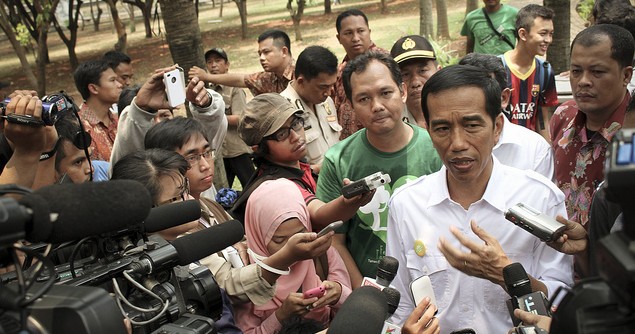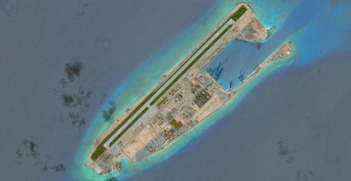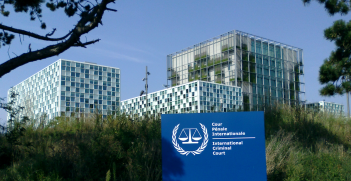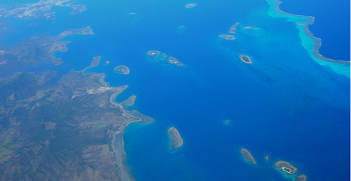Indonesia: The Voice of Developing States?

Monday, the 20th October – ten years to the day after taking office – Susilo Bambang Yudhoyono finished his term as Indonesia’s president and Joko ‘Jokowi’ Widodo took the helm. Australia’s Prime Minister and G20 president 2014, Tony Abbott, attended the inauguration. But will Jokowi attend the G20 Leaders’ Summit in Brisbane next month?
There are unconfirmed reports that Jokowi may skip the G20 Summit to focus on domestic priorities. No doubt Australia will want him to attend. If he does, what will his objectives be?
Multilateral diplomacy has been a central aspect of foreign policy under Yudhoyono and most observers expect this to continue after Jokowi’s inauguration. Indonesia actively participates in key regional and global forums, including APEC, ASEAN and the G20. Indeed, Jokowi is due to attend all three of these forums in November: the APEC Economic Leaders’ meeting in Beijing on November the 10th, the ASEAN Summit in Myanmar on November the 12th, and the G20 Summit on November the 15th and 16th.
The G20 is regarded by Indonesia, an ’emerging’ economy, as a key forum in which to advance its interests. Desra Percaya, Indonesia’s Permanent Representative to the United Nations, wrote recently that ‘greater economic achievement has been declared as a strategic objective of foreign policy for the next five years’. Multilateral economic diplomacy is seen by Indonesian officials as a key ‘driver’ of economic growth, and they have actively engaged in previous summits. Even though it is a time of transition in domestic politics, the Brisbane summit will likely be seen as important.
Indonesia is likely to continue to claim to represent developing countries – at least those seen as ‘emerging economies’. At previous G20 Summits, Indonesia has sought to ‘voice the interests’ of such states and to ensure that the forum is beneficial to them. It has enjoyed growth rates of more than 5% for several years and wants the G20 to develop strategies for sustainable growth which enable emerging economies to fulfill their potential.
This appears to complement the G20 focus in 2014 on the ‘global growth challenge’. Chatib Basri, Indonesia’s Finance Minister (and thus a key figure at the G20), has applauded this push for global growth targets – particularly given the winding back of fiscal stimulus by the United States Federal Reserve earlier this year. Basri sees the Brisbane Action Plan’s focus on global growth as helping to counter the impact of the Federal Reserve’s actions, which some analysts claim has provoked the withdrawal of capital from emerging markets. However, Basri argues, developing countries (including Indonesia) should ‘do their own homework’; they should not solely blame the Federal Reserve’s tapering, but should address domestic structural reform to boost foreign investment.
This raises another specific focus for Indonesia: investment in infrastructure. Denny Abdi of the Foreign Ministry has indicated that Jokowi’s priorities at the G20 are ‘infrastructure and development’, and that the new president would call on other G20 states to boost their investment in infrastructure in Indonesia. Chatib Basri argues that ‘this is really the link between developed countries and emerging markets’. Investment in infrastructure has also been a focus for Indonesia at previous G20 summits, and thus would really be a continuation in its approach rather than a new initiative from the Jokowi government.
Given Jokowi’s image as a ‘man of the people’ and his focus on the urban poor during his time as Governor of Jakarta, it will be interesting to see – if he does attend the G20 Summit – whether he will raise issues of income inequality and poverty. Some Indonesian observers argue that Indonesia’s claim to represent developing countries should involve pushing for G20 attention to such issues, in recognition that a focus on global growth is not necessarily inclusive. For example, Aloysius Suratin, Oxfam’s deputy country director in Indonesia, points out that more than half of the world’s poorest people live in G20 states. Indonesia thus has a role to play in advancing a development agenda which focuses on reducing inequality and ensuring the poor are not ‘left behind’. Whether it will take up this role in Brisbane is as yet unclear.
Finally, Indonesia is the only ASEAN member state in the G20, and as such has an opportunity to represent Southeast Asia. It is unclear whether, or in what way, it might use this opportunity. There will be, in fact, two other ASEAN states in attendance as guests: Myanmar (in its capacity as the current chair of ASEAN) and Singapore. However, ASEAN lacks a formal arrangement to coordinate its approach and agenda in the G20. Indonesia, as the most populous state and somewhat of a ‘default leader’ of ASEAN, could do more to enhance ASEAN’s engagement with the G20. However, given its own domestic priorities in this time of transition – and the apparent possibility that Jokowi himself might not attend – this might be asking too much of Indonesia’s agenda in Brisbane.
Dr Avery Poole is Lecturer in International Relations in the School of Social and Political Sciences in the University of Melbourne.
This article was originally published in G20 Watch, it is republished with permission.





